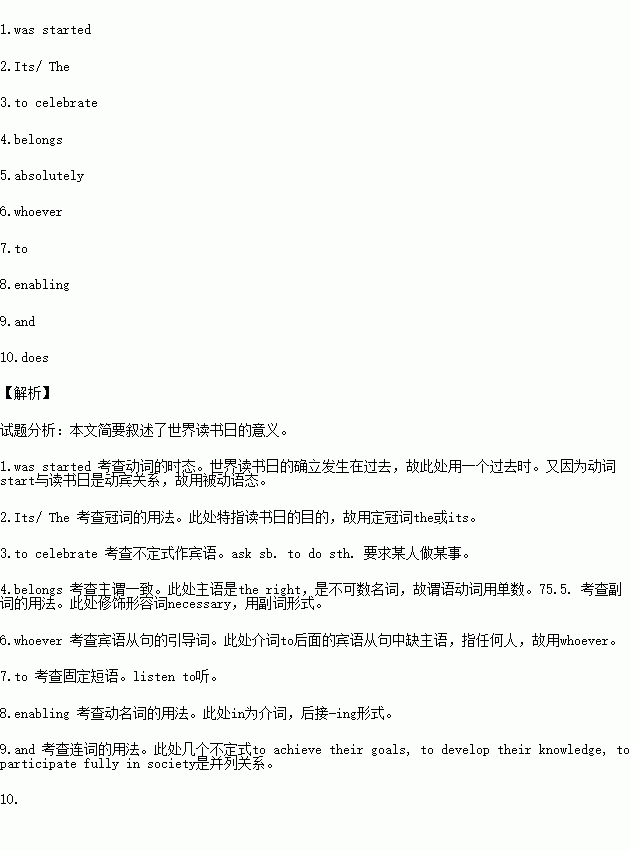题目内容
阅读下面材料,在空白处填入适当的内容(不多于3个单词)或括号内单词的正确形式。
World Read Aloud Day is celebrated each year on the first Wednesday of March. It __1.___ (start) by the LitWorld. Org website in 2010 and has now reached 65 countries. ___2.__ aim is to encourage people worldwide who cannot read to enjoy the benefits of a book. The website asks everyone ___3.__ (celebrate) the day by taking a book, finding an audience, and reading out aloud. It is about taking action to show the world that the right to read and write __4.___ (belong) to all people.
The website asks visitors to join in the movement to reduce the number of illiterate (不识字的) people in the world. It is ____5.___ (absolute) necessary to help those who cannot read. The website says, “It’s time to start by reading aloud to ___6.__ might like it. Share a book with a child who might need it, share a story with someone who would treasure it, listen patiently __7.__ someone else’s story as they share with you.” The United Nations says, “Literacy involves a variety of learning in ____8.___ (able) individuals to achieve their goals, to develop their knowledge, ___9.__ to participate fully in society.” In that way, World Read Aloud Day __10.___ help make a difference.
 阅读快车系列答案
阅读快车系列答案
